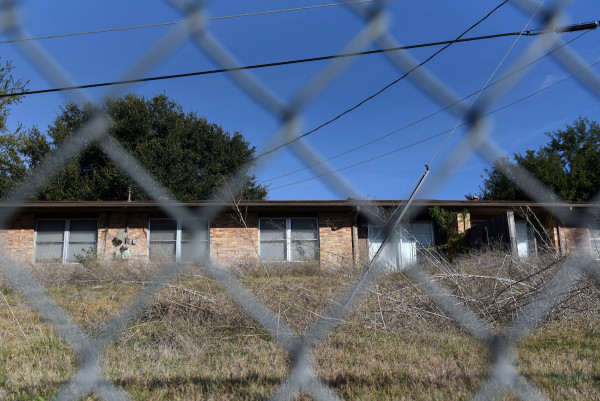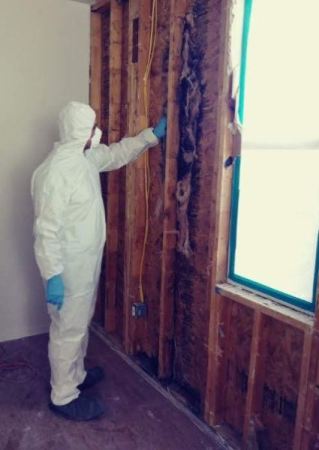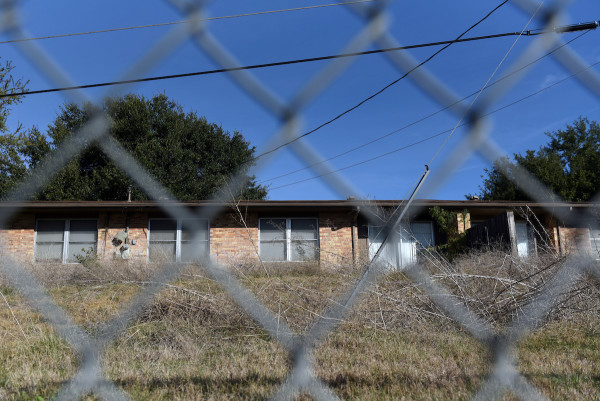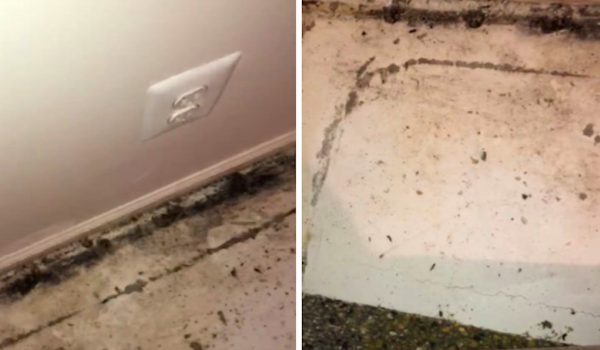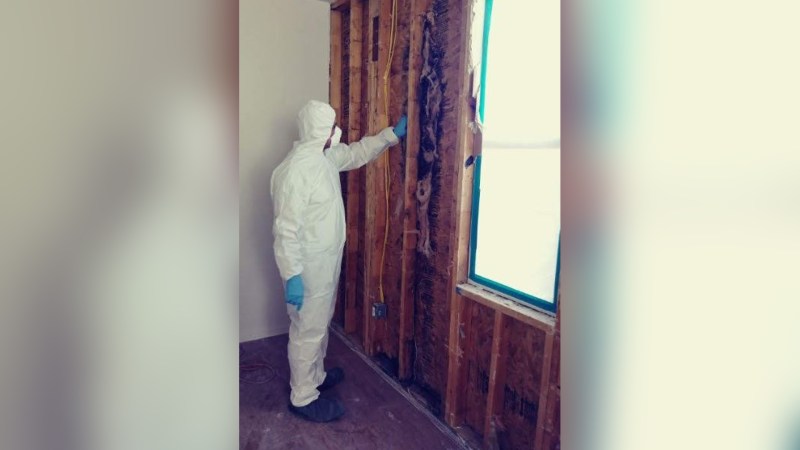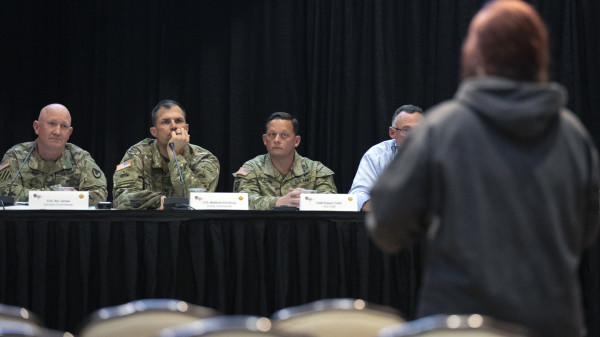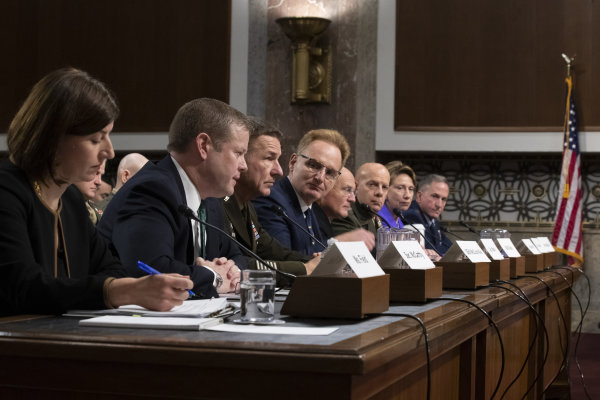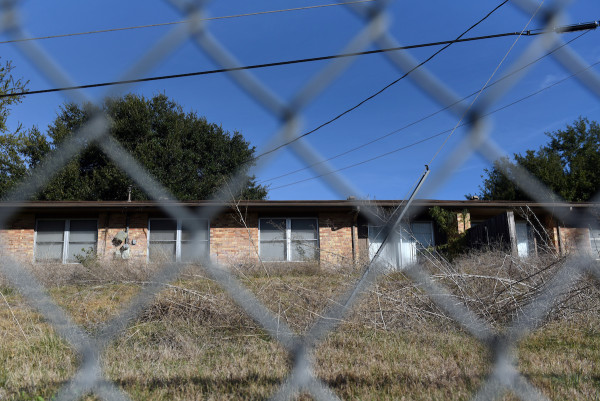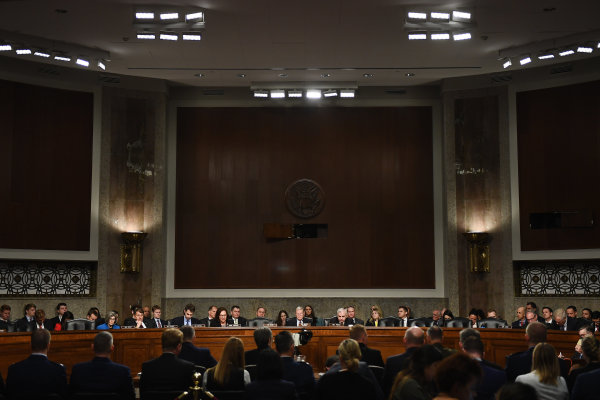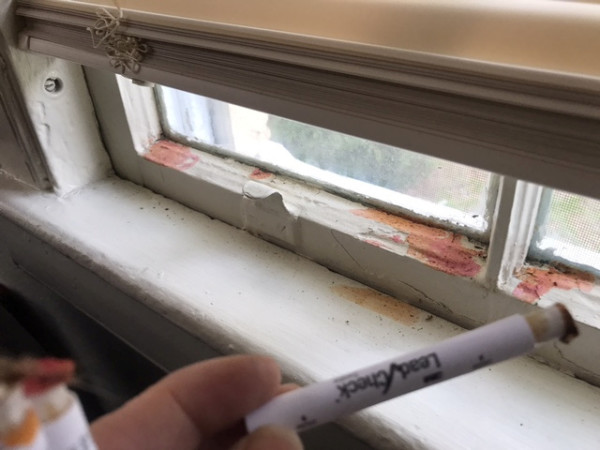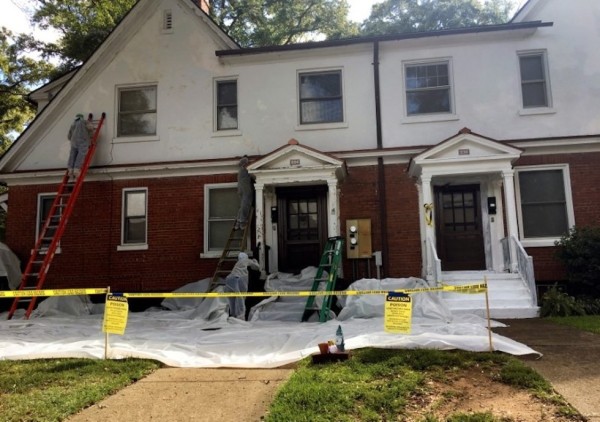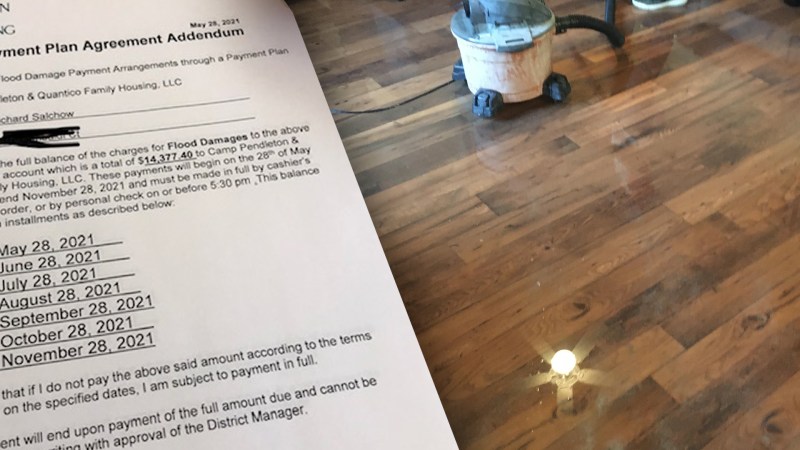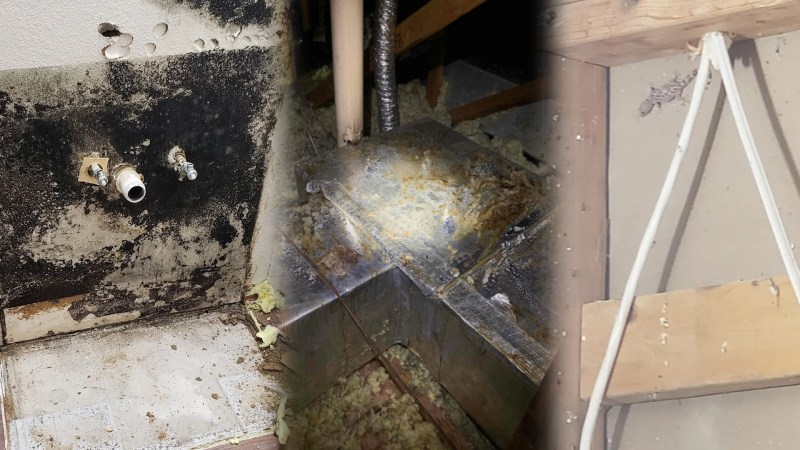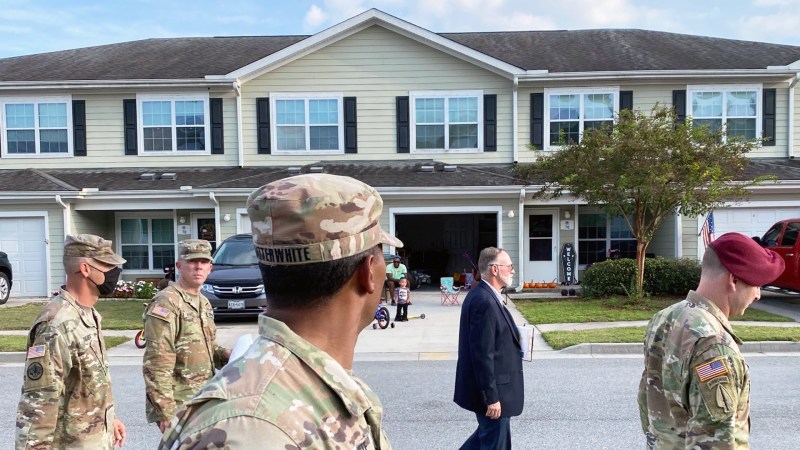The House hearing on Tuesday over privatized military housing can be summed up by a single comment made by Rep. Debbie Wasserman Schultz (D-Fla.): “This entire panel has been eye-opening, and added to my concerns rather than alleviating them.”
The House Appropriations Committee’s Military Construction, Veterans Affairs, and Related Agencies Subcommittee, of which Wasserman Schultz is chairwomen, was just wrapping up their second of three panels of the day. Inside the hearing room sat advocates for better housing — many, if not most, of them military spouses themselves. They nodded along, or exasperatedly shook their heads, all while vigorously taking notes. On several occasions they were shushed, unable to keep themselves from audibly agreeing with one of the subcommittee members or passionately disagreeing with something else.
Outside the hearing room were even more observers, many of whom weren’t permitted inside because of limited seating.
For three hours, the subcommittee heard from privatized housing tenants, DoD officials, and private housing representatives in three separate panels. The hearing was one of several of its kind that have taken place since a 2018 Reuters investigation widely publicized the rampant mold, pest infestations, asbestos, and lead paint that have plagued service members’ homes for years.
A year and a half later since that investigation was first published, families are still struggling, and lawmakers are still grasping for answers.
Army Col. Scott Gerber was one of two tenants who testified first, laying out the mold and maintenance issues that led he and his wife, along with several other families, to sue Corvias, which manages privatized housing at Fort Meade, Maryland.
During his testimony, Gerber urged Congress and the services to include military families and advocacy groups in their conversations about fixing privatized housing, “especially with regard to the Tenant Bill of Rights.”
The Tenant Bill of Rights, which was released by the Pentagon last week and signed by each of the service secretaries, didn’t include three of its most important measures: the ability of a tenant to withhold rent, a process for dispute resolution, and a requirement for housing companies to provide the maintenance history of a home before a tenant signs a lease.
To ensure that the housing companies regain the trust of the service members and families they serve, Gerber said, “we need to have all of the provisions promised in the Tenant Bill of Rights delivered.”
After a brief break, the mood shifted as five men crowded around the table set before the subcommittee, all representing different housing providers: Lincoln, Corvias, Hunt, Lendlease, and Balfour Beatty.
One after another, lawmakers grilled them on their practices, demanding to know how things got this point, and what they’d be changing moving forward.
“Essentially, this system was set up as a gravy train for each of your companies, for all of the companies, that have benefited and put money — millions and millions of dollars — in your pockets and profit,” Wasserman Schultz told them. “But that occurred without a way for military families to hold you accountable because of the way the contracts are structured.”
“It is outrageous, and unacceptable, and all of your testimony is very nice now but we should not be at this place,” she added. “Everything you’ve said today should have been the policies you had in place to begin with.”
At one point during the hearing, Rep. Tim Ryan (D-Ohio) repeatedly questioned Heath Burleson, the partnership advisor for Corvias, on the breakdown in communication that resulted in families reporting issues like mold or rodents, and the companies doing little to nothing about it.
“The taxpayer wants to know how this has been going on so long, and you’re just now coming around to saying ‘Well, we fixed it,’” Ryan said. “What happened? … When that dad or that mom called that person, what the hell happened? What did they do with that information?”
“I think in some cases, residents’ concerns, residents’ issues and challenges, were not taken as seriously as they should’ve been. I think that’s the bottom line,” Burleson responded.
At another point in the hearing, Rep. Matt Cartwright (D-Penn.) asked the housing executives about the use of non-disclosure agreements “for disputes that were never actually litigated,” citing a 2019 report from Task & Purpose which revealed housing companies, and sometimes the services themselves, were encouraging tenants to sign NDAs in order to resolve housing disputes.
“We need transparency. We have to have transparency,” Cartwright said. “If a little extra compensation is given so you can get an NDA, that’s not protecting both parties. That’s protecting the privatized housing company. And it’s going to hurt the people who need to know about the mold, or the infestation, or the paint chips, or whatever’s wrong that led to the dispute in the first place.”
Throughout the discussion, each of the panelists maintained that they were dedicated to service members, professing to their mistakes and assuring the assembled lawmakers that they were making changes.
But for many of the military families burned over the years by the housing providers’ inaction, their words offered little comfort.
After his testimony, Gerber made one thing clear: These companies haven’t seen the last of them.
“I hope they realize they have a better chance of selling snow cones in the seventh level of hell than keeping us from pushing this to completion,” Gerber told Task & Purpose. “We are not going to walk away from this, and if they think they can stall and this will all lose energy and momentum — that’s not going to happen.”

